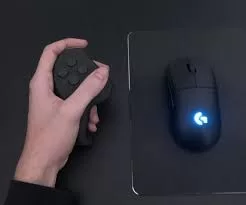
The debate surrounding the connection between left-handedness and superior spatial skills has persisted for decades. Researchers from the University of York and University College London recently proposed a novel perspective, suggesting that left-handed individuals do not necessarily exhibit better spatial abilities.
To explore this, participants were invited to download and engage with a video game that collected user information and monitored navigational challenges. This study involved over 420,000 participants from 41 countries. Surprisingly, the findings indicated that left-handed individuals neither outperformed nor underperformed compared to their right-handed counterparts in these spatial tasks. This conclusion sheds light on the longstanding controversy surrounding the relationship between handedness and spatial skills.
The human brain has two hemispheres, each controlling the opposite side of the body. In right-handed individuals, the left hemisphere governs the dominant right hand, while the situation is reversed for left-handed individuals. Cognitive abilities are often associated with a specific brain hemisphere, and the lateralization patterns differ between right and left-handed individuals. Thus, debates on cognitive differences related to handedness often revolve around the impact of brain lateralization on cognitive abilities.
Spatial cognition, crucial for perceiving and navigating the physical environment, lacks a clear dominance in either hemisphere. This ambiguity has left scientists uncertain about any potential links between spatial skills and handedness.
While some inconclusive research hinted at left-handers excelling in virtual and real-world games, and left-handed athletes being overrepresented in sports requiring rapid and accurate responses, investigating this matter has proven challenging. Handedness prevalence varies across cultures, and testing for handedness effects necessitates a large participant pool. Overcoming these challenges, the researchers utilized the video game Sea Hero Quest, which measured spatial navigational ability. The game was designed to contribute to dementia research and asked participants to navigate a boat through a map toward specific goal locations.
Dr. Pablo Fernandez-Velasco, a researcher at the University of York, co-leading the study, highlighted the novelty of recruiting participants through a video game. The standardized test across a vast sample revealed no substantial evidence of spatial ability differences between left and right-handers across various countries. Moreover, the large dataset confirmed that factors such as age, gender, and education did not influence the relationship between hand preference and spatial ability.
Left-handed participants constituted approximately 9.94% of the sample, with a higher proportion of left-handed males compared to females, aligning with general population trends. Dr. Fernandez-Velasco acknowledged that while the study demonstrated that large-scale spatial skills are not affected by handedness, future research might uncover nuanced differences in navigation styles or preferences for different environments based on handedness.











